Duke Energy’s plan to bring smart meters to the mountains could put two key concerns — energy conservation and human health — into a head-on collision, critics say.


Duke Energy’s plan to bring smart meters to the mountains could put two key concerns — energy conservation and human health — into a head-on collision, critics say.
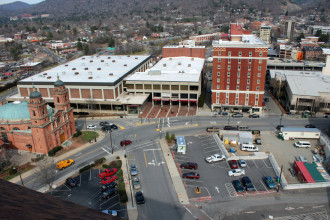
Asheville City Council voted unanimously to accept the recommendations presented by a volunteer citizen panel as the basis for soliciting design services on on Tuesday, March 28. But the community vision presented by the Haywood Street Advisory Team leaves a lot of room for interpretation — and possibly for future controversy about the long-debated best uses for the site.
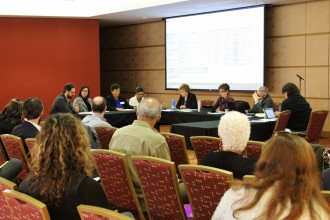
Nonprofit organizations made their best pitch to City Council’s Housing and Community Development Committee for a share of federal and city funds for the 2017-18 fiscal year at a day-long meeting on Friday, March 24. Some left happy, while others expressed dissatisfaction with a process they said favored established city partners who had received funding in prior years.
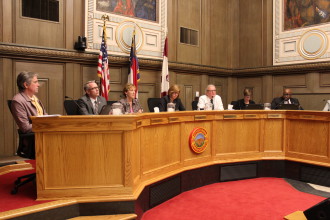
Through their elected leaders, Asheville voters will now have more say-so over development projects downtown and new hotels citywide.

While 2016 statistics show increasing availability in the area’s rental housing market, Asheville renters say their choices remain limited and prices steep. Several city initiatives — including a $25 million affordable housing bond referendum approved by voters in November — aim to bolster the supply of affordable housing, while some private-sector players are pursuing similar goals.

At a sold-out event in downtown Asheville, NPR journalist Michel Martin and local panelists reflect on what happens when your hometown gets hot.

City Council voted unanimously to deny the zoning request for a 185-room hotel at 192 Haywood St. at its Jan. 24 meeting. Police Chief Tammy Hooper gave an update on policing in the city in 2016.

A federal judge last week heard a challenge to Department of Energy plans to transport liquid radioactive waste from Canada to the Savannah River Site disposal facility near Aiken, S.C. If the plans move forward, waste could move through Western North Carolina, activists say, and shipments could begin as soon as February.

Related story
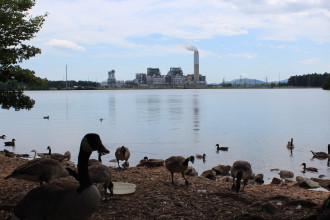
With the close of the 2016 session of the North Carolina General Assembly, homeowners and environmental advocates are scrambling to make sense of new legislation on coal ash ponds. How will the new rules affect the cleanup of coal ash ponds at Duke Energy’s Lake Julian plant, as well as homeowners who believe their wells have been contaminated by the ponds?

Natural gas will dethrone coal as the fossil fuel generating most of WNC’s electricity when Duke Energy’s new Lake Julian plant goes online in 2020. But how does natural gas get to this area, and where does it come from? Though tracing the gas molecules to their source is tricky, Xpress found that much of the area’s gas supply comes from hydraulic fracturing, and new pipeline projects are in the works to bring more fracked gas into the region.
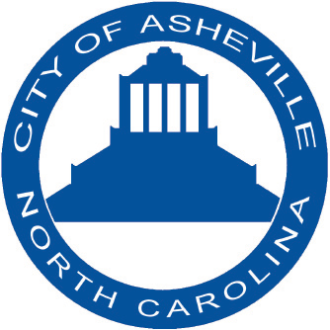
At its June 14 meeting, City Council approved a conditional zoning request for a 290-unit apartment complex off Long Shoals Road that will displace 55 low-income families from a mobile home park located on part of the project site.
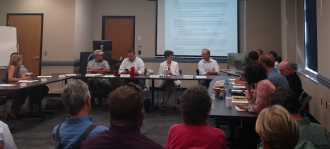
The second meeting of the Buncombe County Energy Innovation Task Force focused on setting up working groups that will focus on four key areas: community programs, technical solutions, community engagement and communication and peak demand reduction.
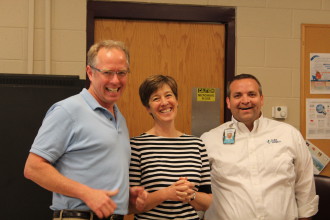
The new Energy Innovation Task Force — which brings together representatives from electric utility Duke Energy, elected officials, the private sector, nonprofits and alternative energy providers — held its first meeting on May 13. In addition to the task force members, a sizable group of citizens and energy advocates also turned out for the public kickoff of the one-of-a-kind initiative, which aims to slow the growth of local energy demand and avoid the construction of a third natural gas generator.

With an annual economic impact of $2.6 billion, tourism is a critical industry in Western North Carolina. But politicians and local residents are increasingly asking whether the tourism industry is paying a fair share of the cost of providing everything from sidewalks to roads to public safety to tourists. Now, City Councilman Gordon Smith is pushing for a new study to consider the local tourism industry’s impact and sustainability.

In addition to her new role as Vice Mayor, Asheville City Councilmember Gwen Wisler serves on a long list of important city boards and commissions, as well as civic organizations. Xpress talks with Wisler to find out what’s on her mind as she leads city projects from the budget to the update of the citywide comprehensive plan.
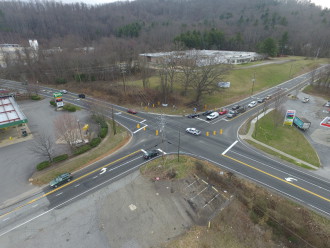
Driven by concerns about rapid development and increasing traffic congestion, South Asheville residents are working to make their voices heard in city and county government. One prospective apartment complex at the corner of Mills Gap and Sweeten Creek roads has become a focus for residents’ concerns.

The city asked for input on downtown development review standards and, if turnout can be considered an indication, it certainly got it. At least 124 members of the community signed in for an open house-style meeting about development issues in downtown Asheville on March 23.
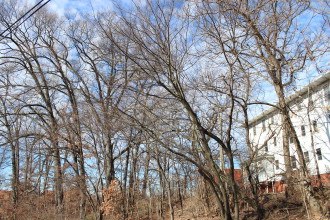
If the 23 mature oak trees at 11 Collier Ave. on Asheville’s South Slope are to escape the chainsaw, it will have to be without the city’s help. While City Council followed through on its commitment to explore possible strategies for preserving the urban forest, in the end Council decided that committing resources to the effort in advance of significant private fundraising wasn’t a responsible use of taxpayer assets.
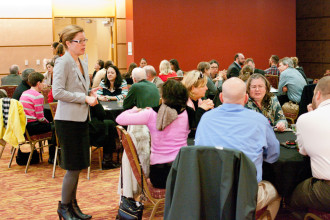
At a luncheon on Jan. 14, Mayor Esther Manheimer and Vice Mayor Gwen Wisler welcomed new and returning city board chairs and commissioners to their important positions in city government. Roundtable discussions produced suggestions for enhanced collaborations between the city’s 34 boards and commissions and other parts of city government.

Supporters of a public park on the site of a city-owned lot across the street from the Basilica of St. Lawrence and the U.S. Cellular Center are gearing up to present 4,389 signed petitions in favor of a park at the Dec. 8 meeting of City Council.